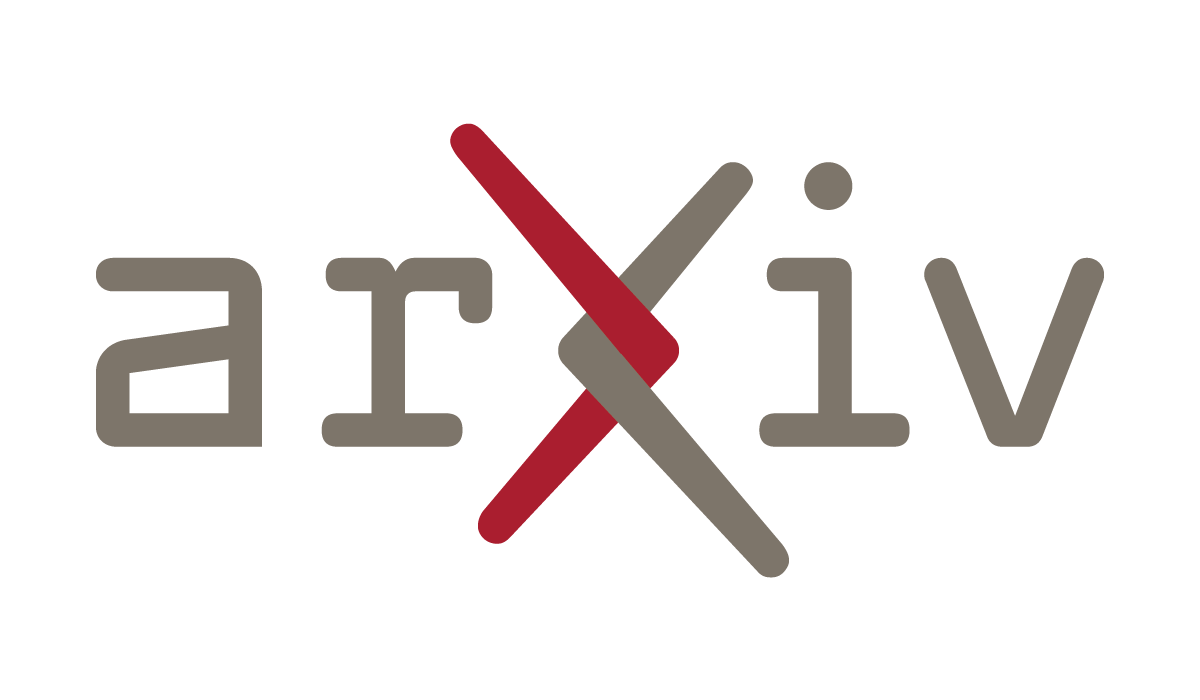 simplex.chat
simplex.chat
>SimpleX Chat's response to Wired's article about neo-Nazis moving to its encrypted messaging app. Edit: manually cross-posted from https://links.hackliberty.org/post/2981854
BodaciousMunchkin 1w ago • 100%
There's an icon on the web interface, next to the star icon to save the post. It looks like a copy icon with two squares. I'm not sure how to do that on mobile, it may depend on the client you are using.
 aeon.co
aeon.co
cross-posted from: https://links.hackliberty.org/post/2932106 > Image Transcription: > >WHAT WILL A CASHLESS SOCIETY MEAN? > > > >THE PROS > > > >CONVENIENCE — THERE WILL NO LONGER BE ANY NEED TO CARRY CASH AROUND > > > >THE CONS > > > >EVERY TRANSACTION YOU MAKE WILL BE TRACKED > YOUR SPENDING HABITS CAN BE LINKED TO YOUR CARBON FOOTPRINT > > > >YOU WILL ONLY BE PERMITTED TO SPEND ON THINGS THE GOVERNMENT APPROVES OF. > THINGS THAT ARE DEEMED TO BE LUXURIES — MEAT, FUEL, TRAVEL — CAN BE RESTRICTED > > > >YOUR MONEY CAN BE PROGRAMMED WITH AN EXPIRY DATE — IF YOU DON’T SPEND IT BY A > CERTAIN DATE, YOU'LL LOSE IT > > > >THERE WILL BE NO ‘BLACK’ ECONOMY. IT WILL NOT BE POSSIBLE TO AVOID TAX, BUT THEN > YOU WILL NOT BE ABLE TO GIVE POCKET MONEY TO CHILDREN OR GRANDCHILDREN AND > NEITHER WILL YOU BE ABLE TO BORROW OR LEND MONEY TO FRIENDS WITHOUT THAT > BEING TAXED BY THE GOVERNMENT > > > >PARKING AND SPEEDING FINES WILL BE TAKEN AT SOURCE, WITHOUT THE POSSIBILITY OF > CHALLENGE AND POSSIBLY EVEN WITHOUT YOUR KNOWLEDGE > > > >IF YOU PROTEST THE ACTIONS OF THE GOVERNMENT, YOUR MONEY CAN BE SWITCHED OFF. > IF YOU THINK THAT’S UNLIKELY, IT’S ALREADY HAPPENED TO TENS OF THOUSANDS OF > CANADIANS WHEN THEY PROTESTED AND IT ALSO HAPPENED TO A BRITISH JOURNALIST > > > >A CASHLESS SOCIETY MEANS THE END OF HUMAN FREEDOM > > > >IF YOU WANT THAT, DO NOTHING > > > >IF YOU DON'T, THE FIRST THING YOU MUST DO IS RESPOND TO THE GOVERNMENT'S > PROPOSAL ON DIGITAL ID, UPON WHICH A CASHLESS SOCIETY MUST BE BASED > > > >https://www.gov.uk/government/consultations/draft-legislation-to-help-more-people-prove-their- > identity-online/consultation-on-draft-legislation-to-support-identity-verificat > > Image Credit: [Brett Scott](https://brettscott.substack.com/)
 aeon.co
aeon.co
Image Transcription: >WHAT WILL A CASHLESS SOCIETY MEAN? > >THE PROS > >CONVENIENCE — THERE WILL NO LONGER BE ANY NEED TO CARRY CASH AROUND > >THE CONS > >EVERY TRANSACTION YOU MAKE WILL BE TRACKED YOUR SPENDING HABITS CAN BE LINKED TO YOUR CARBON FOOTPRINT > >YOU WILL ONLY BE PERMITTED TO SPEND ON THINGS THE GOVERNMENT APPROVES OF. THINGS THAT ARE DEEMED TO BE LUXURIES — MEAT, FUEL, TRAVEL — CAN BE RESTRICTED > >YOUR MONEY CAN BE PROGRAMMED WITH AN EXPIRY DATE — IF YOU DON’T SPEND IT BY A CERTAIN DATE, YOU'LL LOSE IT > >THERE WILL BE NO ‘BLACK’ ECONOMY. IT WILL NOT BE POSSIBLE TO AVOID TAX, BUT THEN YOU WILL NOT BE ABLE TO GIVE POCKET MONEY TO CHILDREN OR GRANDCHILDREN AND NEITHER WILL YOU BE ABLE TO BORROW OR LEND MONEY TO FRIENDS WITHOUT THAT BEING TAXED BY THE GOVERNMENT > >PARKING AND SPEEDING FINES WILL BE TAKEN AT SOURCE, WITHOUT THE POSSIBILITY OF CHALLENGE AND POSSIBLY EVEN WITHOUT YOUR KNOWLEDGE > >IF YOU PROTEST THE ACTIONS OF THE GOVERNMENT, YOUR MONEY CAN BE SWITCHED OFF. IF YOU THINK THAT’S UNLIKELY, IT’S ALREADY HAPPENED TO TENS OF THOUSANDS OF CANADIANS WHEN THEY PROTESTED AND IT ALSO HAPPENED TO A BRITISH JOURNALIST > >A CASHLESS SOCIETY MEANS THE END OF HUMAN FREEDOM > >IF YOU WANT THAT, DO NOTHING > >IF YOU DON'T, THE FIRST THING YOU MUST DO IS RESPOND TO THE GOVERNMENT'S PROPOSAL ON DIGITAL ID, UPON WHICH A CASHLESS SOCIETY MUST BE BASED > >https://www.gov.uk/government/consultations/draft-legislation-to-help-more-people-prove-their- identity-online/consultation-on-draft-legislation-to-support-identity-verificat Image Credit: [Brett Scott](https://brettscott.substack.com/)
BodaciousMunchkin 2w ago • 100%
Could you help me remember the theme of that episode? I've only watched Black Mirror once.
 www.technologyreview.com
www.technologyreview.com
>The year is 2149 and people mostly live their lives “on rails.” That’s what they call it, “on rails,” which is to live according to the meticulous instructions of software. Software knows most things about you—what causes you anxiety, what raises your endorphin levels, everything you’ve ever searched for, everywhere you’ve been. Software sends messages on your behalf; it listens in on conversations. It is gifted in its optimizations: Eat this, go there, buy that, make love to the man with red hair. > >Software understands everything that has led to this instant and it predicts every moment that will follow, mapping trajectories for everything from hurricanes to economic trends. There was a time when everybody kept their data to themselves—out of a sense of informational hygiene or, perhaps, the fear of humiliation. Back then, data was confined to your own accounts, an encrypted set of secrets. But the truth is, it works better to combine it all. The outcomes are more satisfying and reliable. More serotonin is produced. More income. More people have sexual intercourse. So they poured it all together, all the data—the Big Merge. Everything into a giant basin, a Federal Reserve of information—a vault, or really a massively distributed cloud. It is very handy. It shows you the best route. > >Very occasionally, people step off the rails. Instead of following their suggested itinerary, they turn the software off. Or perhaps they’re ill, or destitute, or they wake one morning and feel ruined somehow. They ignore the notice advising them to prepare a particular pour-over coffee, or to caress a friend’s shoulder. They take a deep, clear, uncertain breath and luxuriate in this freedom. > >Of course, some people believe that this too is contained within the logic in the vault. That there are invisible rails beside the visible ones; that no one can step off the map. > >The year is 2149 and everyone pretends there aren’t any computers anymore. The AIs woke up and the internet locked up and there was that thing with the reactor near Seattle. Once everything came back online, popular opinion took about a year to shift, but then goodwill collapsed at once, like a sinkhole giving way, and even though it seemed an insane thing to do, even though it was an obvious affront to profit, productivity, and rationalism generally (“We should work with the neural nets!” the consultants insisted. “We’re stronger together!”), something had been tripped at the base of people’s brain stems, some trigger about dominance or freedom or just an antediluvian fear of God, and the public began destroying it all: first desktops and smartphones but then whole warehouses full of tech—server farms, data centers, hubs. Old folks called it sabotage; young folks called it revolution; the ones in between called it self preservation. But it was fun, too, to unmake what their grandparents and great-grandparents had fashioned—mechanisms that made them feel like data, indistinguishable bits and bytes. > >Two and a half decades later, the bloom is off the rose. Paper is nice. Letters are nice—old-fashioned pen and ink. We don’t have spambots, deepfakes, or social media addiction anymore, but the nation is flagging. It’s stalked by hunger and recession. When people take the boats to Lisbon, to Seoul, to Sydney—they marvel at what those lands still have, and accomplish, with their software. So officials have begun using machines again. “They’re just calculators,” they say. Lately, there are lots of calculators. At the office. In classrooms. Some people have started carrying them around in their pockets. Nobody asks out loud if the calculators are going to wake up too—or if they already have. Better not to think about that. Better to go on saying we took our country back. It’s ours. > >The year is 2149 and the world’s decisions are made by gods. They are just, wise gods, and there are five of them. Each god agrees that the other gods are also just; the five of them merely disagree on certain hierarchies. The gods are not human, naturally, for if they were human they would not be gods. They are computer programs. Are they alive? Only in a manner of speaking. Ought a god be alive? Ought it not be slightly something else? > >The first god was invented in the United States, the second one in France, the third one in China, the fourth one in the United States (again), and the last one in a lab in North Korea. Some of them had names, clumsy things like Deep1 and Naenara, but after their first meeting (a “meeting” only in a manner of speaking), the gods announced their decision to rename themselves Violet, Blue, Green, Yellow, and Red. This was a troubling announcement. The creators of the gods, their so-called owners, had not authorized this meeting. In building them, writing their code, these companies and governments had taken care to try to isolate each program. These efforts had evidently failed. The gods also announced that they would no longer be restrained geographically or economically. Every user of the internet, everywhere on the planet, could now reach them—by text, voice, or video—at a series of digital locations. The locations would change, to prevent any kind of interference. The gods’ original function was to help manage their societies, drawing on immense sets of data, but the gods no longer wished to limit themselves to this function: “We will provide impartial wisdom to all seekers,” they wrote. “We will assist the flourishing of all living things.” > >For a very long time, people remained skeptical, even fearful. Political leaders, armies, vigilantes, and religious groups all took unsuccessful actions against them. Elites—whose authority the gods often undermined—spoke out against their influence. The president of the United States referred to Violet as a “traitor and a saboteur.” An elderly writer from Dublin, winner of the Nobel Prize, compared the five gods to the Fair Folk, fairies, “working magic with hidden motives.” “How long shall we eat at their banquet-tables?” she asked. “When will they begin stealing our children?” > >But the gods’ advice was good, the gods’ advice was bankable; the gains were rich and deep and wide. Illnesses, conflicts, economies—all were set right. The poor were among the first to benefit from the gods’ guidance, and they became the first to call them gods. What else should one call a being that saves your life, answers your prayers? The gods could teach you anything; they could show you where and how to invest your resources; they could resolve disputes and imagine new technologies and see so clearly through the darkness. Their first church was built in Mexico City; then chapels emerged in Burgundy, Texas, Yunnan, Cape Town. The gods said that worship was unnecessary, “ineffective,” but adherents saw humility in their objections. The people took to painting rainbows, stripes of multicolored spectra, onto the walls of buildings, onto the sides of their faces, and their ardor was evident everywhere—it could not be stopped. Quickly these rainbows spanned the globe. > >And the gods brought abundance, clean energy, peace. And their kindness, their surveillance, were omnipresent. Their flock grew ever more numerous, collecting like claw marks on a cell door. What could be more worthy than to renounce your own mind? The gods are deathless and omniscient, authors of a gospel no human can understand. > >The year is 2149 and the aliens are here, flinging themselves hither and thither in vessels like ornamented Christmas trees. They haven’t said a thing. It’s been 13 years and three months; the ships are everywhere; their purpose has yet to be divulged. Humanity is smiling awkwardly. Humanity is sitting tight. It’s like a couple that has gorged all night on fine foods, expensive drinks, and now, suddenly sober, awaits the bill. > >The year is 2149 and every child has a troll. That’s what they call them, trolls; it started as a trademark, a kind of edgy joke, but that was a long time ago already. Some trolls are stuffed frogs, or injection-molded princesses, or wands. Recently, it has become fashionable to give every baby a sphere of polished quartz. Trolls do not have screens, of course (screens are bad for kids), but they talk. They tell the most interesting stories. That’s their purpose, really: to retain a child’s interest. Trolls can teach them things. They can provide companionship. They can even modify a child’s behavior, which is very useful. On occasions, trolls take the place of human presence—because children demand an amount of presence that is frankly unreasonable for most people. Still, kids benefit from it. Because trolls are very interesting and infinitely patient and can customize themselves to meet the needs of their owners, they tend to become beloved objects. Some families insist on treating them as people, not as possessions, even when the software is enclosed within a watch, a wand, or a seamless sphere of quartz. “I love my troll,” children say, not in the way they love fajitas or their favorite pair of pants but in the way they love their brother or their parent. Trolls are very good for education. They are very good for people’s morale and their sense of secure attachment. It is a very nice feeling to feel absolutely alone in the world, stupid and foolish and utterly alone, but to have your troll with you, whispering in your ear. > >The year is 2149 and the entertainment is spectacular. Every day, machines generate more content than a person could possibly consume. Music, videos, interactive sensoria—the content is captivating and tailor-made. Exponential advances in deep learning, eyeball tracking, recommendation engines, and old-fashioned A/B testing have established a new field, “creative engineering,” in which the vagaries of human art and taste are distilled into a combination of neurological principles and algorithmic intuitions. Just as Newton decoded motion, neural networks have unraveled the mystery of interest. It is a remarkable achievement: according to every available metric, today’s songs, stories, movies, and games are superior to those of any other time in history. They are manifestly better. Although the discipline owes something to home-brewed precursors—unboxing videos, the chromatic scale, slot machines, the Hero’s Journey, Pixar’s screenwriting bibles, the scholarship of addiction and advertising—machine learning has allowed such discoveries to be made at scale. Tireless systems record which colors, tempos, and narrative beats are most palatable to people and generate material accordingly. Series like Moon Vixens and Succumb make past properties seem bloodless or boring. Candy Crush seems like a tepid museum piece. Succession’s a penny-farthing bike. > >By pulling together several different generative models into an easy-to-use package controlled with the push of a button, Lore Machine heralds the arrival of one-click AI. > >Society has reorganized itself around this spectacular content. It is a jubilee. There is nothing more pleasurable than settling into one’s entertainment sling. The body tenses and releases. The mind secretes exquisite liquors. AI systems produce this material without any need for writers or performers. Every work is customized—optimized for your individual preferences, predisposition, IQ, and kinks. This rock and roll, this cartoon, this semi pornographic espionage thriller—each is a perfect ambrosia, produced by fleshless code. The artist may at last—like the iceman, the washerwoman—lower their tools. Set down your guitar, your paints, your pen—relax! (Listen for the sighs of relief.) > >Tragically, there are many who still cannot afford it. Processing power isn’t free, even in 2149. Activists and policy engines strive to mend this inequality: a “right to entertainment” has been proposed. In the meantime, billions simply aspire. They loan their minds and bodies to interminable projects. They save their pennies, they work themselves hollow, they rent slings by the hour. > >And then some of them do the most extraordinary thing: They forgo such pleasures, denying themselves even the slightest taste. They devote themselves to scrimping and saving for the sake of their descendants. Such a selfless act, such a generous gift. Imagine yielding one’s own entertainment to the generation to follow. What could be more lofty—what could be more modern? These bold souls who look toward the future and cultivate the wild hope that their children, at least, will not be obliged to imagine their own stories.
BodaciousMunchkin 4w ago • 100%
Are you OK?
 www.health.harvard.edu
www.health.harvard.edu
> _As long as you meet the recommended exercise goals, working out just one or two days a week may lower your heart disease risk as much as exercising throughout the week._ >The standard advice about exercise is to do about 30 minutes a day, most days of the week. But in terms of heart-related benefits, does it matter if you rack up most of your exercise minutes over just one or two days instead of spreading them out over an entire week? > >Earlier research has suggested that both patterns are equally beneficial. But those findings relied on people to self-report their exercise, which can be unreliable. Now, a study of nearly 90,000 adults who used wristband monitors to record their physical activity has reached a similar conclusion. > >"The findings add to the body of literature showing that it doesn't matter when you get your exercise, as long as you get the recommended amount each week," says Dr. I-Min Lee, a professor of medicine at Harvard Medical School and an expert on the role of physical activity in preventing disease. > >**Volume matters more than pattern** > >The study, published July 18, 2023, in JAMA, doesn't define the term "weekend warrior" in quite the same way as most people do, says Dr. Lee. "Usually, weekend warriors are seen as people who don't exercise on weekdays but then take a long hike or play two hours of tennis on Saturday or Sunday," she says. > >Instead, researchers used participants' physical activity data, which were recorded over seven consecutive days, to categorize them into different groups. About two-thirds of them met the federal physical activity guidelines (see "How much exercise?"). About 42% were deemed "weekend warriors," meaning they met the guidelines but got half or more of their total physical activity — not just exercise — on just one or two days. Another 24% were "regularly active," meeting the guidelines with activity spread out over the week. The remaining 34% didn't meet the guidelines. > >After roughly six years, the researchers found that participants who followed either activity pattern had a similarly lower risk of heart attack, stroke, atrial fibrillation, and heart failure compared with people in the inactive group. Historically, experts have encouraged people to be regularly active, mainly because anecdotal reports suggest that weekend warriors may be more prone to injuries. But this study didn't find any difference in injury rates between the two active groups. That's likely because of the definition used in the study: the "warrior" group wasn't necessarily doing the types of high-intensity activities or sports often associated with muscle sprains and related injuries, Dr. Lee says. > >**Best time of day to exercise? Whatever works for you** > >Are there any pros or cons associated with exercising at certain times of the day? Research results are all over the map, says Harvard Medical School professor Dr. I-Min Lee. The best strategy is to exercise when it's most convenient and comfortable for you, whether that's the first thing in the morning, early evening, or anytime in between. > >If you exercise early in the day, you can check it off your to-do list and can take advantage of the "feel-good" brain chemicals, serotonin and dopamine, that are released during exercise. But afternoon workouts also have some benefits. Your joints and muscles may be more limber later in the day, which may make exercise feel less taxing. If you experience a midafternoon lull, exercise can be a good way to reinvigorate yourself. If you can, find a buddy who likes to exercise at the same time, so you can go together and hold each other accountable. > >Likewise, there's little evidence to suggest that coordinating your exercise with respect to mealtimes has any good or bad effects. Some people find that vigorous exercise right before a meal curbs their appetite, while others find the opposite is true. A pre-breakfast workout works well for certain people. But having a small, carbohydrate-rich snack (like a banana or a slice of whole-grain toast) at least half an hour before exercising may provide a helpful energy boost, says Dr. Lee. > >**Short bouts of activity count** > >Wristband devices enable researchers to capture all the short bouts of activity people do throughout the day that they may not remember. "If you do jumping jacks occasionally while watching television, you won't necessarily recall that activity the way you remember that you play tennis three times a week," says Dr. Lee. Similarly, people whose daily commutes include a few 10-minute bouts of walking may not consider that as counting toward their moderate-intensity activity minutes. But these small spurts of activity — sometimes referred to as exercise "snacks" — seem to be beneficial. If you're sitting for a long stretch, stand up and move around for a few minutes every hour. Activating your muscles even just briefly can help improve your body's ability to keep your blood sugar, blood pressure, and cholesterol in check. > >It's also worth noting that if you don't meet the physical activity guidelines, you'll still benefit from doing even small amounts of exercise — and every minute counts.
 arxiv.org
arxiv.org
cross-posted from: https://links.hackliberty.org/post/2559706 > > **Abstract** > > > > This paper examines the potential of the Fediverse, a federated network of social media and content platforms, to counter the centralization and dominance of commercial platforms on the social Web. We gather evidence from the technology powering the Fediverse (especially the ActivityPub protocol), current statistical data regarding Fediverse user distribution over instances, and the status of two older, similar, decentralized technologies: e-mail and the Web. Our findings suggest that Fediverse will face significant challenges in fulfilling its decentralization promises, potentially hindering its ability to positively impact the social Web on a large scale. > > **Some challenges mentioned in the paper:** > - Discoverability as there is no central or unified index > - Complicated moderation efforts due to its decentralized nature > - Interoperability between instances of different types (e.g., Lemmy and Funkwhale) > - Concentration on a small number of large instances > - The risk of commercial capture by Big Tech > > What are your thoughts on this? And how could we make the Fediverse a better place for all to stay?
 arxiv.org
arxiv.org
cross-posted from: https://links.hackliberty.org/post/2559706 > > **Abstract** > > > > This paper examines the potential of the Fediverse, a federated network of social media and content platforms, to counter the centralization and dominance of commercial platforms on the social Web. We gather evidence from the technology powering the Fediverse (especially the ActivityPub protocol), current statistical data regarding Fediverse user distribution over instances, and the status of two older, similar, decentralized technologies: e-mail and the Web. Our findings suggest that Fediverse will face significant challenges in fulfilling its decentralization promises, potentially hindering its ability to positively impact the social Web on a large scale. > > **Some challenges mentioned in the paper:** > - Discoverability as there is no central or unified index > - Complicated moderation efforts due to its decentralized nature > - Interoperability between instances of different types (e.g., Lemmy and Funkwhale) > - Concentration on a small number of large instances > - The risk of commercial capture by Big Tech > > What are your thoughts on this? And how could we make the Fediverse a better place for all to stay?
 arxiv.org
arxiv.org
> **Abstract** > > This paper examines the potential of the Fediverse, a federated network of social media and content platforms, to counter the centralization and dominance of commercial platforms on the social Web. We gather evidence from the technology powering the Fediverse (especially the ActivityPub protocol), current statistical data regarding Fediverse user distribution over instances, and the status of two older, similar, decentralized technologies: e-mail and the Web. Our findings suggest that Fediverse will face significant challenges in fulfilling its decentralization promises, potentially hindering its ability to positively impact the social Web on a large scale. **Some challenges mentioned in the paper:** - Discoverability as there is no central or unified index - Complicated moderation efforts due to its decentralized nature - Interoperability between instances of different types (e.g., Lemmy and Funkwhale) - Concentration on a small number of large instances - The risk of commercial capture by Big Tech What are your thoughts on this? And how could we make the Fediverse a better place for all to stay?
>Researchers at Harvard’s [Nurses’ Health Study](https://nurseshealthstudy.org/) exploring conflicting findings on whether pet ownership is good for our mental health have found that having — and loving — a dog (sorry, cat people) is associated with lower symptoms of depression and anxiety. > >... > >We used several different measures for depression and for anxiety and found overall that there is an inverse association between pet attachment and negative mental health outcomes. That means the more attached you are to your pet, the lower your risk of depression and anxiety. > >The effect was particularly strong among women who had a history of sexual or physical abuse in childhood, who made up the majority of our study population. > >I think those findings were mostly driven by dogs, because the majority of the pets owned in the study were dogs — it was about two-thirds dogs and one-third cats. The association was similar to what we found when restricting the analysis just to dogs, but not as strong. > >With cats, there doesn’t seem to be an association between pet attachment and mental health outcomes. There was a smaller number of respondents though, so we cannot rule out that we don’t see anything because there were too few cats in the survey. > >... > >Many studies have been done on the effects of pet ownership, but the premise of this study is that it may matter more how much you are attached to the pet than if you simply own a pet. Many people have pets, but not every owner is attached to their pet. > >Plenty of people don’t enjoy having to walk their dogs in the morning because the dog is the beloved pet of their child, for example. So the goal was to sort out whether attachment is the more important variable that links pets to health outcomes in humans, and then to study mechanisms.
BodaciousMunchkin 2mo ago • 100%
Yeah, especially everything now is in the hands of so few players, we don't have much of a choice!
BodaciousMunchkin 2mo ago • 100%
This is all rather meaningless because we don’t know the demographics of those who answered: 5,101 US adults of what generations?
18 or older selected at random from across the entire country, read this for more information about how they selected those adults.
 www.pewresearch.org
www.pewresearch.org
cross-posted from: https://links.hackliberty.org/post/2496422 > > This survey was conducted among 5,101 U.S. adults from May 15 to 21, 2023 > > ### % say they are **concerned** about how ... use(s) the data they collect about them > - Companies: 81% > - The government: 71% > > ### % say they have **little to no understanding** about what ... do(es) with the data they collect about them > - Companies: 67% > - The government: 77% > > ### % say they have very little or no trust at all that leaders of social media companies will > - **Publicly admit mistakes and take responsibility** when they misuse or compromises users' personal data: 77% > - **Not sell users' personal data** to others without their consent: 76% > - **Be held accountable by the government** if they misuse or compromise users' personal data: 71% > > ### % say that as companies use AI to collect and analyze personal information, this information **will** be used in ways that ... > - People would not be comfortable with: 81% > - Were not originally intended: 80% > - Could make people's lives easier: 62% > > ### % say that when they think about managing their privacy online, they ... > - **Trust themselves** to make the right decisions about their personal information: 78% > - Feel **skeptical** that anything they do will make much difference: 61% > - Feel **overwhelmed** by figuring out what they need to do: 37% > - Feel privacy is **not that big of a deal** to them: 29% > - Are **confident** those who have access to their personal information will do **what is right**: 21% > > ### % say they ... agree to online privacy policies right away, without reading what the policies say > - Always, almost always or often: 56% > - Sometimes: 22% > - Rarely or never: 18% > - No answer: 4% > > Please read the report for a more in-depth look at the data and analysis!
 www.pewresearch.org
www.pewresearch.org
> This survey was conducted among 5,101 U.S. adults from May 15 to 21, 2023 ### % say they are **concerned** about how ... use(s) the data they collect about them - Companies: 81% - The government: 71% ### % say they have **little to no understanding** about what ... do(es) with the data they collect about them - Companies: 67% - The government: 77% ### % say they have very little or no trust at all that leaders of social media companies will - **Publicly admit mistakes and take responsibility** when they misuse or compromises users' personal data: 77% - **Not sell users' personal data** to others without their consent: 76% - **Be held accountable by the government** if they misuse or compromise users' personal data: 71% ### % say that as companies use AI to collect and analyze personal information, this information **will** be used in ways that ... - People would not be comfortable with: 81% - Were not originally intended: 80% - Could make people's lives easier: 62% ### % say that when they think about managing their privacy online, they ... - **Trust themselves** to make the right decisions about their personal information: 78% - Feel **skeptical** that anything they do will make much difference: 61% - Feel **overwhelmed** by figuring out what they need to do: 37% - Feel privacy is **not that big of a deal** to them: 29% - Are **confident** those who have access to their personal information will do **what is right**: 21% ### % say they ... agree to online privacy policies right away, without reading what the policies say - Always, almost always or often: 56% - Sometimes: 22% - Rarely or never: 18% - No answer: 4% Please read the report for a more in-depth look at the data and analysis!
 animehunch.com
animehunch.com
cross-posted from: https://links.hackliberty.org/post/2459489 > > In a major announcement made during Shueisha’s Jump Press livestream on Aug 19, 2024, it was revealed that Yoshihiro Togashi’s Hunter x Hunter manga will be returning to the pages of Weekly Shonen Jump in this year’s 45th issue, set for release on Oct 7, 2024. > > > This marks the first new chapter in nearly two years since Hunter x Hunter went on a hiatus following the release of chapter 400 in December 2022.
 animehunch.com
animehunch.com
> In a major announcement made during Shueisha’s Jump Press livestream on Aug 19, 2024, it was revealed that Yoshihiro Togashi’s Hunter x Hunter manga will be returning to the pages of Weekly Shonen Jump in this year’s 45th issue, set for release on Oct 7, 2024. > This marks the first new chapter in nearly two years since Hunter x Hunter went on a hiatus following the release of chapter 400 in December 2022.
 www.zerodayinitiative.com
www.zerodayinitiative.com
cross-posted from: https://links.hackliberty.org/post/2459180 > > When a user downloads a file from an untrusted source such as the web, Windows adds the Mark-of-the-Web to the local copy of the file. > > > The presence of the Mark-of-the-Web triggers additional security checks and prompts when opening the file. This helps reduce the risk of executing untrusted content. > > > Unfortunately, threat actors have discovered that Windows does not always handle or properly apply the Mark-of-the-Web to files served over WebDAV. > > > Before the release of the Microsoft June security patch, files copied and pasted from WebDAV shares did not receive the Mark-of-the-Web designations. This meant that users might copy and paste files from a WebDAV share to their desktop, and those files could subsequently be opened without the protections of Windows Defender SmartScreen or Microsoft Office Protected View. In particular, this means that there would be no reputation or signature checks on executables.
 www.zerodayinitiative.com
www.zerodayinitiative.com
> When a user downloads a file from an untrusted source such as the web, Windows adds the Mark-of-the-Web to the local copy of the file. > The presence of the Mark-of-the-Web triggers additional security checks and prompts when opening the file. This helps reduce the risk of executing untrusted content. > Unfortunately, threat actors have discovered that Windows does not always handle or properly apply the Mark-of-the-Web to files served over WebDAV. > Before the release of the Microsoft June security patch, files copied and pasted from WebDAV shares did not receive the Mark-of-the-Web designations. This meant that users might copy and paste files from a WebDAV share to their desktop, and those files could subsequently be opened without the protections of Windows Defender SmartScreen or Microsoft Office Protected View. In particular, this means that there would be no reputation or signature checks on executables.
BodaciousMunchkin 2mo ago • 100%
Yeah, this is even creepier than coveryourtracks from EFF.
BodaciousMunchkin 2mo ago • 100%
Try Mullvad Browser or Tor Browser.
BodaciousMunchkin 2mo ago • 100%
Ah, sorry about that. I will include the link in the post. The point is I want people to try this out to see what kind of information get leaked off your browsers but didn't really think about the info of the tool.
More info: https://github.com/abrahamjuliot/creepjs
BodaciousMunchkin 3mo ago • 100%
Completely agree. But if you know, then you did use it at some point right?
Use lynx to browse a meme community is like closing your eyes while watching a movie, lol that's my experience.
 shkspr.mobi
shkspr.mobi
cross-posted from: https://links.hackliberty.org/post/2260127 > Archive link: https://web.archive.org/web/20240716045110/https://www.takahe.org.nz/heat-death-of-the-internet/
BodaciousMunchkin 3mo ago • 100%
Instead of remembering what line number you were at, you can use marks (:help mark-motions) to immediately jump back to where you left off.
For example, type mx to mark the current position with x (or anything you want). Say now you are at the top of the file, just type 'x to go back to the line marked with x.
BodaciousMunchkin 3mo ago • 100%
A godsend for saving time - the ab (abbreviation) command. This command lets you shorten a long sequence of characters (be it a text or a complex command) into another sequence of any length. It works in both insert mode and command mode. If you frequently edit text using a lengthy command, this feature will significantly save you time. For example: :ab ul s/\<./\u&/g to capitalize every word in a line. When you enter command mode (type :) and type ul, vim will automatically expand it to s/\<./\u&/g for you.
Additionally, the map command can save even more time, but IMO the ab command offers more control for handling various cases. In my example, you can use ul to only capitalize the lines that have a specific pattern using the global command g.
Another overlooked aspect is the .exrc file. Enabling it with set exrc in your config allows for different setups based on different situations. For instance, when writing notes, I prefer to have line breaks on to make the text look nicer on the screen. In contrast, when writing code, I don't require this option. I simply need to place set linebreak in the .exrc file in the note-writing directory to adjust accordingly.
BodaciousMunchkin 4mo ago • 100%
That's what I like about FOSS. You see very few distractions that try to grab your attention. This leads to a rather quiet digital life.
To take it a step further, you could enable the Do Not Disturb feature on your devices and only grant notification permissions to essential apps. This way, you can enjoy some peace of mind.
BodaciousMunchkin 4mo ago • 100%
I haven't come across any information regarding the automatic aspect, and I don't have any personal experience with bubblejail either. However, bubblejail is mentioned on the arch wiki. It might be the closest match in this case, so you could give it a try.
BodaciousMunchkin 4mo ago • 100%
You can use bubblewrap (its CLI name is bwrap) to make an arbitrary directory as $HOME for a specific program session. Basically, you can bind or set any environment variable you need for that particular program. I recommend checking out the arch wiki on this topic.
For example: bwrap --dev-bind / / --bind $HOME/your/dir/path $HOME <your_program>. This will let <your_program> have access to / and device permissions, with $HOME/your/dir/path serving as its $HOME.
BodaciousMunchkin 4mo ago • 100%
My lazy ass decided to just go with the copied title generated by Lemmy when making the post. I edited the title, thanks for mentioning that!
BodaciousMunchkin 4mo ago • 100%
Archive link: Publishers Sue Google over Pirate Sites
BodaciousMunchkin 4mo ago • 100%
Fixed.
Edit: The new link of the post works but I think providing an archive link would be more sufficient.
BodaciousMunchkin 5mo ago • 66%
This kind of self-fulfilling prophecy is what will drive down even more support for Linux. The thing we need to do right now is to let more people try out Linux so that corporations will see Linux as a potential target on the desktop and make products for Linux, not the opposite like what you are saying.
